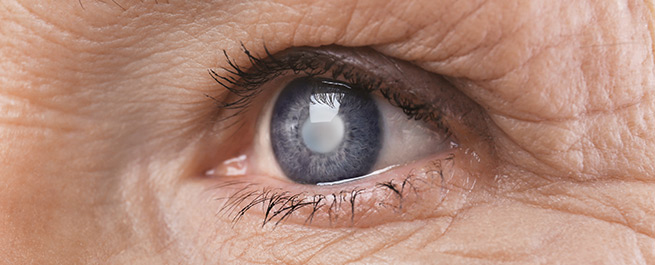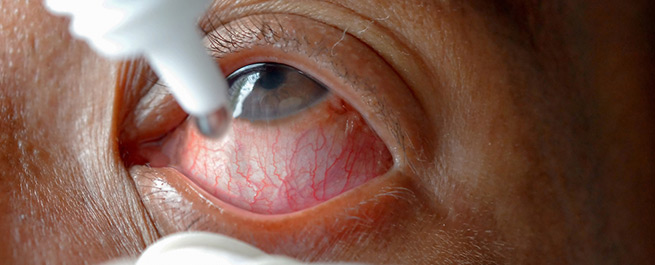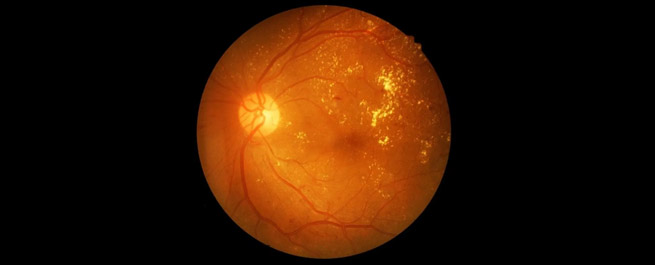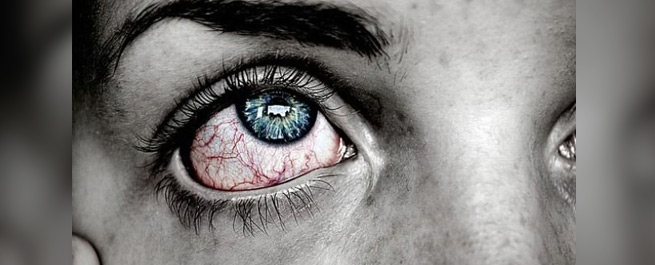Eye Health
To say our eyesight is important is an understatement. The part of the brain devoted to vision is larger than those dedicated to touch, taste, smell and hearing combined. Despite that, eyesight is often taken for granted by many of us, at least until problems arise. When that happens, it’s important to know there are experts on the high street dedicated to helping us overcome them. That’s us by the way.
When it comes to our eyes, any ailment that affects our ability to see the world and the things that we love that exist within it can be scary. The team at Robert Glass understand this and it’s part of everything we do.
Our eyes are part of an incredibly complex organic machine, so it’s only to be expected that looking after them is going to generate questions. With that in mind, let’s take a look at some of the most common ones we hear with regard to getting them tested and what you can expect.

Cataracts
Cataract is a clouding of the lens in your eye and is a very common eye condition that usually develops as we get older. This can reduce your vision and prevent you from doing day to day tasks efficiently and safely. Many people with cataract will eventually require surgery to replace the cloudy lens with a new replacement lens.
In the UK it is estimated that around 2.5 million people aged 65 or older have some degree of visual impairment caused by cataracts. As well as your age several additional factors may increase your risk of developing cataracts these include:
- Smoking
- Family history of cataracts
- Lifestyle factors such as poor diet, excessive amounts of alcohol
- Certain health conditions such as diabetes
- Taking steroid medication for a long period of time
- Over exposing your eyes to sunlight
If you think you are having a problem with your vision make an appointment with one of our optometrists.

Glaucoma
Glaucoma is the name given to a group of eye conditions which cause optic nerve damage and can affect your vision. Glaucoma damage may be caused by raised eye pressure or a weakness in the optic nerve. Your eye needs a certain amount of pressure to work properly but if this is too high this can painlessly and silently lead to blindness. Our optometrist can check your eye pressures, your peripheral field of vision and examine your optic nerves carefully during your eye examination and look for early signs of this serious condition.
Different types of glaucoma are:
- Primary open angle glaucoma
- Acute angle closure glaucoma
- Secondary glaucoma
- Developmental glaucoma
If left untreated Glaucoma can cause blindness but if diagnosed and treated early enough further damage to vision can be prevented.

Age-Related Macular Degeneration
Age-Related Macular Degeneration is a painless eye condition that leads to the gradual loss of central vision. This becomes increasingly blurred leading to symptoms including:
- Difficulty reading printed or written text
- Colours appear less vibrant
- Difficulty recognising peoples faces
Macula Degeneration develops when the macula (a part of the retina at the back of the eye responsible for central vision) is unable to function properly. Reason for this can include age, poor diet, smoking and a family history of Macular Degeneration.
There are two main types of Macular Degeneration Dry AMD and Wet AMD.
Dry AMD develops when the cells of the macula become damaged due to lack of nutrients and build up of waste products. It is the most common type and is usually slow to develop. Loss of vision is gradual however an estimated 1 in 10 people with dry AMD will go on to develop Wet AMD.
Wet AMD develops when abnormal blood vessels form underneath the macula and damage its cells. Wet AMD is more serious and without treatment vision can rapidly deteriorate.
If your vision suddenly gets worse or you notice blind spots in your field of vision seek advice immediately.

Dry Eye
This can be caused by
- The environment (work and general), particularly dry heat or a windy climate
- Disease
- Side effects of medication
- Hormonal changes
- Ageing
The surface of your eye is always covered by a thin layer of liquid known as the tear film. Tears have several important functions; they lubricate your eyes, keep them clean, protect eyes against infection and aid sight by helping to stabilise your vision.
Tears are produced and regulated by a system known as the lacrimal function unit. If any part of this system is affected, either the quantity of tears produced is affected, or the quality of the tears. Either outcome can result in dry eye syndrome. As the eyes are no longer adequately protected by the tear film, special signals are sent to the immune system (the body’s defence system) to try to compensate and correct this deficiency. It is this process that causes the inflammation of the eye, which is frequently associated with more serious forms of dry eye syndrome.

Diabetic Retinopathy
This occurs when the retina (the light sensitive layer of tissue) at the back of the eye is damaged due to diabetes. Blood vessels in the retina can become blocked or leaky, or can grow haphazardly. This damages the retina and stops it from functioning properly. The better you control your blood sugar levels, the lower your risk of developing serious eye problems. Diabetic retinopathy can be normally managed using various treatment options if it is caught early enough.

Red Eye
If your red eye is painless, it is most likely to be caused by a minor eye problem such as conjunctivitis or a burst blood vessel. Your Optician will identify the condition. If you have a painful eye with some of the following, reduced vision, severe headaches, sensitivity to light or have recently injured your eye then contact us, your GP or NHS 111 for the appropriate advice.
Every 12 months. Fundamentally, we are checking to ensure your eyes are in good health by looking for signs of disease and assessing their overall health
Fundamentally, we are looking to ensure your eyes are in good health by looking for signs of diseases and their overall health. We obviously also need to understand how well you can see, both close – up and at a distance. Our team are fully trained to know if any correction is needed to your current prescription or, if you’re new to wearing glasses, we can advise you on what happens next.
If you are eligible, then your eye-test could be free. It won’t cost you a penny if you are in receipt of certain benefits, 18 or under and still in full-time education, at risk of glaucoma (i.e.have a family history of it) or are over 60 years of age.
If you do have to pay, then the cost for our eye test is just £25
Children can have their eyes tested at any age. We recommend that an optician sees your child before they start at school as any vision problems may affect your child’s learning.
The earlier a problem is detected the greater the probability of successful treatment. Childrens eyes are fully developed by the time they are 8 years old. It is very important that any problems are detected before then.
If you think there has been a sudden change in your vision or you are experiencing visual distortions, flashing lights or floaters etc please call one of our practices as soon as possible. It may not be anything to worry about but should be investigated just incase.
